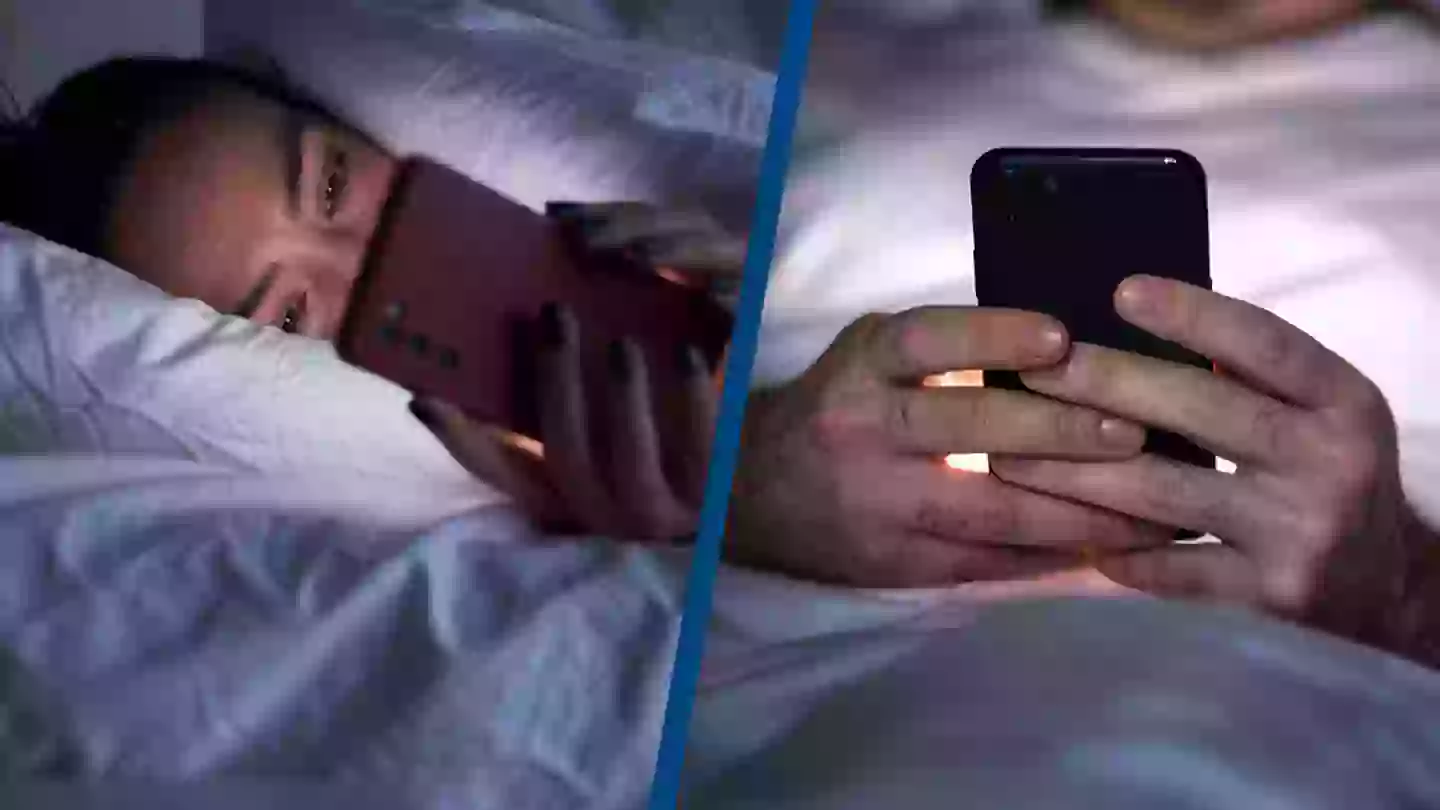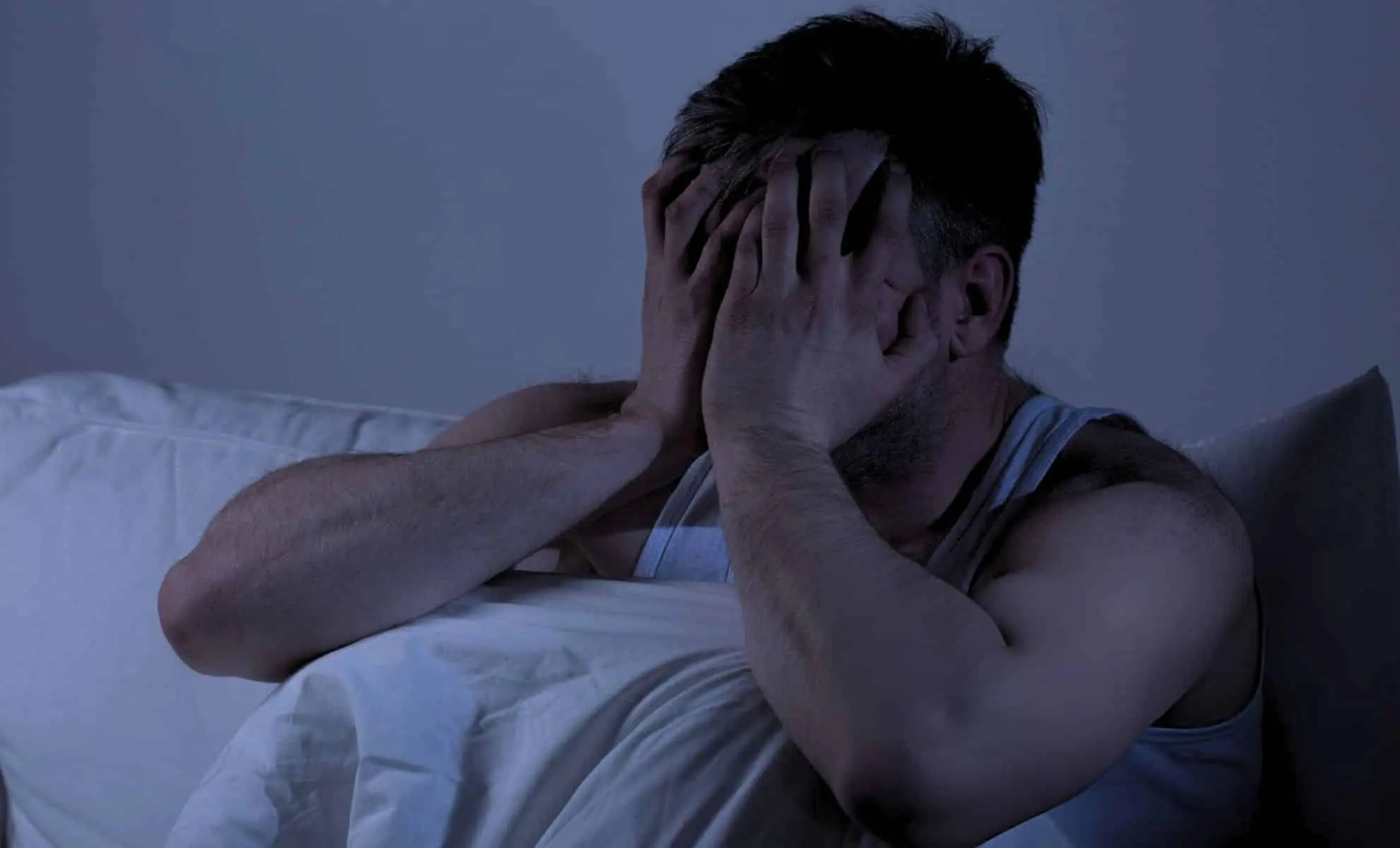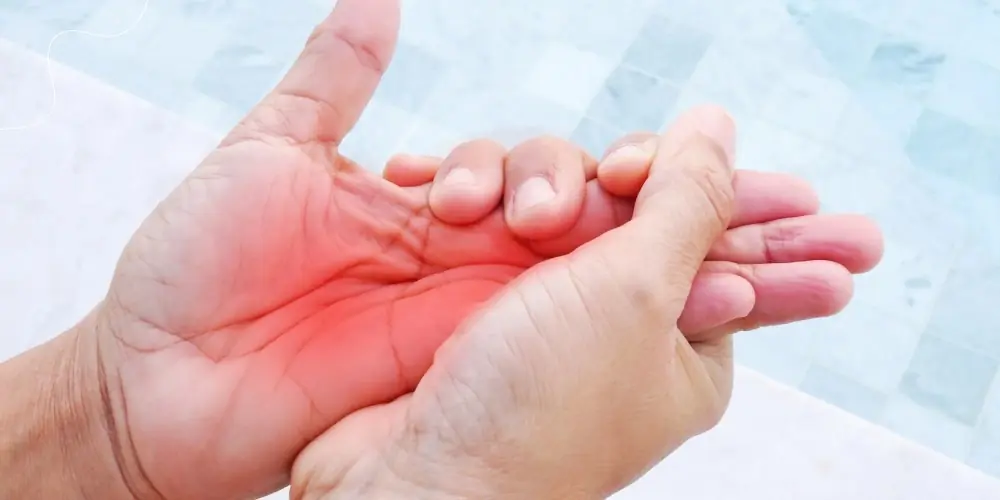
Just one hour of doomscrolling in bed can have devastating consequences on your health
A new study has explained why late-night doomscrolling isn’t doing any favors for your health.
Since phones are now an everyday piece of tech that we all use, sometimes it can be hard to know exactly when to put them down.
Most people tend to have their phones on them at all times and rarely go more than a few minutes without doing something with the handy gadget.

However, a new Norway study has found that late-night use isn’t ideal for people’s health.
So, you might want to cut back that bedtime doomscrolling for hours before you actually put your phone down.
A survey of 45,202 young adults in Norway has discovered that using a screen in bed drives up your risk of insomnia by 59% and cuts your sleep time by 24 minutes.
But social media wasn’t the root cause here, as the study found that simply using the screen was the greatest issue.
Dr. Gunnhild Johnsen Hjetland of the Norwegian Institute of Public Health, lead author of the article in Frontiers in Psychiatry, commented about the study.
They said: “The type of screen activity does not appear to matter as much as the overall time spent using screens in bed.
“We found no significant differences between social media and other screen activities, suggesting that screen use itself is the key factor in sleep disruption—likely due to time displacement, where screen use delays sleep by taking up time that would otherwise be spent resting.”
A press release also explained how screen use ultimately negatively impacts a person’s sleep. It stated: “Notifications disturb sleep, screen time replaces sleeping time, screen activities keep you wakeful so you take longer to fall asleep, or light exposure delays circadian rhythms.”
Beyond this, Hjetland also noted it was important to not just focus on decreasing late-night screen time for young people, as adults are also at risk of ruining their sleep.
He continued: “Sleep problems are highly prevalent among students and have significant implications for mental health, academic performance, and overall well-being, but previous studies have primarily focused on adolescents.
“Given the widespread use of screens in bed, we aimed to explore the relationship between different screen activities and sleep patterns. We expected that social media use might be more strongly associated with poorer sleep, given its interactive nature and potential for emotional stimulation.”
While the study highlights the negative effects of screen use at night, researchers emphasize that small changes in nighttime habits can lead to significant improvements in sleep quality.
How to Reduce the Negative Impact of Screens Before Bed

-
Establish a Screen-Free Wind-Down Routine: Experts recommend turning off screens at least an hour before bed and engaging in relaxing activities such as reading a book, meditating, or taking a warm bath.
-
Use Blue Light Filters: Many smartphones and tablets have built-in blue light filters that reduce exposure to the harmful wavelengths that suppress melatonin production.
-
Keep Your Bedroom a Screen-Free Zone: Consider charging your phone outside the bedroom and using a traditional alarm clock instead of your phone.
-
Set a Sleep Schedule: Going to bed and waking up at the same time every day helps regulate your body’s internal clock.
-
Limit Notifications: Turn off notifications at night to prevent interruptions and avoid the temptation to check your phone.
The Long-Term Consequences of Poor Sleep Due to Screens
Prolonged exposure to screens before bed not only impacts sleep in the short term but can also lead to long-term health issues. Studies have linked chronic sleep deprivation to increased risks of heart disease, obesity, weakened immune function, and even cognitive decline.
 v
v
Additionally, sleep disturbances have been shown to contribute to mental health challenges, including heightened stress, anxiety, and depression. Research suggests that consistent lack of sleep can also affect memory consolidation and overall cognitive performance, making it harder to focus and retain information.
As technology continues to evolve and become even more integrated into daily life, it’s crucial to strike a balance between screen time and healthy sleep habits. By making small but meaningful adjustments to nighttime routines, individuals can significantly improve their sleep quality, leading to better overall health and well-being.
News in the same category


Euphorbia Hirta (Asthma-Plant): Ancient Remedies and Modern Applications for Health and Wellness

Doctor Warns Against This One Thing If You Wake Up at Night

Reasons You Could Have Numbness or Tingling Sensations in Your Hands

A Well-Known Shampoo Is Being Withdrawn Immediately Due To Bacteria That Can Kill One In Ten Patients

9 Reasons Why You Should Eat Okra Multiple Times a Week

What’s In Your Mouth Could Be Triggering Alzheimer’s, Scientists Say

10 Signs You're Living With Clogged Arteries

Man with severe anger issues breaks down in tears after seeing what radiologist found in scans of his brain

How to Treat H. Pylori Bacteria Causing Heartburn and Bloating + Natural Remedies

8 Ways To Get Rid Of Phlegm And Mucus In Chest And Throat

After A 49-Year-Old Father Of Two Passes Away, There Is An Urgent Warning For All Pet Owners Who Allow Their Dogs To Lick Them

8 of the Best Anti-Cancer Foods. It’s Time to Start Adding Them to Your Diet

Getting Annoyed By Chewing Sounds Is a Genuine Psychiatric Disorder

5 Concerning Red Flags That May Signal Colon Cancer

Risk Of Prostate Cancer Increases By 45% In Men Who Share This Common Practice

End-of-life nurse shares the most disturbing behaviors seen in those nearing death

**Say Goodbye to Skin Tags and Warts: Easy Removal with Hydrogen Peroxide**

What Does It Signify When You Dream of a Deceased Loved One?

8 Fruits That Can Harm People with Kidney Disease
News Post

Banana Peels as a Natural Ant Repellent: A Safe and Eco-Friendly Solution

1 year ago 1 year ago Peace Lily Care Guide: Key Tips to Ensure Its Flourishing Growth

THIS DOUBLES Your Testosterone Naturally in 7 Days!

10 Remarkable Health Benefits of Pigweed Greens You Need to Know

Euphorbia Hirta (Asthma-Plant): Ancient Remedies and Modern Applications for Health and Wellness

Yarrow: A Natural Herb with Powerful Health Benefits

Onion peels and cloves: a simple hair growth remedy from Grandma's time

Vaseline to look 10 years younger

HE JUST NEEDED $25 FOR A HAIRCUT—BUT WHAT HE DID WITH IT SHOOK ME

When my son innocently revealed that my husband had been secretly driving a brighter car with a woman I knew nothing about.

Doctor Warns Against This One Thing If You Wake Up at Night

Reasons You Could Have Numbness or Tingling Sensations in Your Hands

A Well-Known Shampoo Is Being Withdrawn Immediately Due To Bacteria That Can Kill One In Ten Patients

Why Was My Son Left Out? A Text Revealed the Truth

Three Became Fathers in a Day—One Text Changed Everything

"Unbelievable Coincidence: The Orphanage Held a Carbon Copy of Our Child!"

The Hidden Weight of Childhood: A Journey of Independence, Compassion, and Unspoken Secrets

There were cops in my yard, and as an african american family, my mind was full of negative thoughts

I Always Thought Housework Was a Breeze—Until My Son Taught Me a Lesson I’ll Always Remember

I Helped Plan a Family Cruise for My Dad and Stepmom & They Invited Me Too—I Didn't Know They'd Turn Me Into the Nanny
I thought joining my dad and stepmom on a family cruise would bring us closer. Instead, I found myself stuck in a tiny cabin with two kids and a long list of responsibilities no one warned me about.